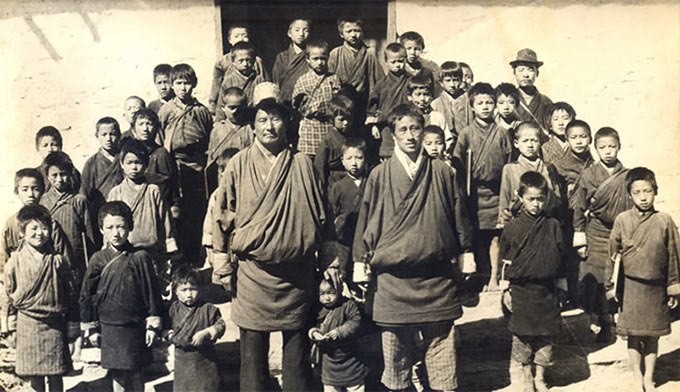GNH
Feb 14, 2010
In the late 1940s, a photographer visited a school in the village of Paro, a day's walk up into the mountains from Thimphu, the capital city of Bhutan. One of the students in this picture recorded the occasion in his journal: "All we heard was a click, and then the next day we were amazed to see our images had materialised on paper."
Bhutan remained one of the world's most isolated countries until the 1990s, when its king announced a new economic policy, which he called GNH: Gross National Happiness. Some Western developments, including television, would be allowed in, even encouraged, but others, such as smokestack industries, would be kept out. Bhutanese life would be integrated with the rest of the world only insofar as the changes increased people's happiness in Bhutan. A new government ministry was created to measure GNH.
And so it came to pass that in 2008, upon recommendation of the ministry of happiness, the kingdom of Bhutan became a democracy, with its leaders chosen by popular election. The American experience evidently was not cautionary enough. Or something.
So far, Bhutan still ranks at the top worldwide in indices of national happiness, according to people who try to measure this sort of thing. The Bhutanese people are said to be as happy as anyone anywhere--and far happier than people in other parts of the world where per capita income is as low as it is in Bhutan. The average Bhutanese person gets by on about $l,000 a year.
The village of Paro now hosts an annual international cricket tournament. If cricket is required for high GNH, we Americans are surely doomed.
